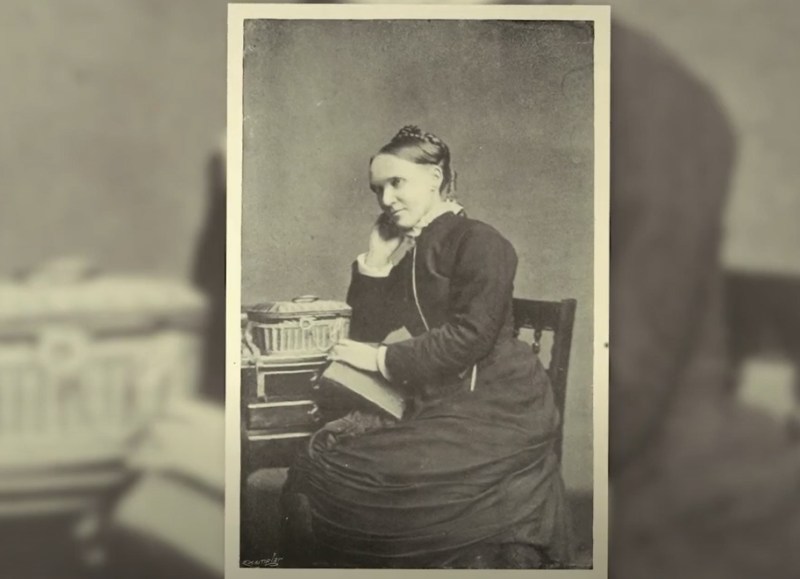Rural America: The New Mission Field?
Sign up for a six month free
trial of The Stand Magazine!
(Digital Editor's Note: This article appeared first in the May 2023 edition of the print version of The Stand.)
“For some today, the measure of success is found in how many we serve rather than whom we serve,” wrote pastor and author Dr. Glenn Daman in his book The Forgotten Church: Why Rural Ministry Matters for Every Church in America.
Daman grew up in Idaho farming country attending a small church of 40-50 people. There, he came to know the Lord and developed a passion for rural ministry.
He graduated from seminary in 1987, then pastored a small church in Montana.
In 1991, the Lord led him to River Christian Church, a small, semi-rural church in Stevenson, Washington, where he still serves today. Its Sunday attendance is about 80-90.
Those attendance numbers suggest Daman’s concept of “small church.” There is no official definition of the phrase small church, but it appears often in today’s church literature. The George Barna research firm used “100 or fewer adults” to define it in a 2003 survey.
Despite today’s intense focus on megachurches and urban ministry in the culture, Daman’s heart has remained with small churches, especially in rural America. He does not reject the need for urban and suburban ministry: “Without question, these ministries continue to be desperately needed today.”
His objective, rather, is “to bring the rural ministry back into focus.” Daman spoke with The Stand about his heart for small churches.
The Stand: Are there benefits of pastoring a rural church?
Glenn Daman: As pastors, one advantage is that we know our people, and we develop a relationship with them. We can serve as a shepherd. The people are not just nameless faces in a massive crowd.
They’re friends. We know their struggles. We know their needs. We can minister directly and individually to people. To me, that’s the greatest advantage.
I confess my bias, but I think that’s the model Christ presents in the New Testament. He doesn’t call us to run businesses or organizations; He calls us to be shepherds of people.
TS: What difficulties or challenges occur?
GD: We struggle with two things in a small church. One is a sense of discouragement because we don’t see massive growth. We don’t see things happening that the world defines as success, which is size, numbers, and growth. That can be discouraging.
Couple that with the fact that we don’t have the resources, facilities, staff, worship teams, and all the things that larger churches have, and we think, Boy, it would be nice to have that stuff.
So there’s always that struggle with a feeling of inadequacy and a lack of resources. I think that’s a myth, but that’s what we struggle with.
TS: The myth being the lack of resources?
GD: Yes. God gives us everything we need to do His will. Sometimes we equate dynamic worship teams and programs with success. But they don’t necessarily correlate. In fact, sometimes they can become a distraction because it becomes hype, not transformation.
TS: Are there any other drawbacks?
GD: One thing about being a small church pastor is our people know us, both strengths and weaknesses. But that’s kind of a plus and a minus. It’s a plus in the sense that we can be real, and people know that we’re not perfect, so they don’t put us on a pedestal.
But it can be a frustration because our weaknesses are much more evident to everybody. And we struggle with that sometimes, at least I do.
For me, the biggest struggle in pastoral ministry is not the challenges of the church, it’s the challenge of my own spiritual walk knowing that I struggle as much as everybody else.
There are times where we get up to preach, and we know we’re not living what we’re preaching because we’re still in process as well. And that can be a challenge.
TS: How would you encourage small church ministers?
GD: We tend to overcomplicate ministry. I use the analogy of a Rubik’s Cube, which is a complex thing that I can’t figure out. But the record for solving it is something like seven seconds. In the end, it’s inherently simple. You learn the moves, and you can solve it.
For some reason, we like complexity, and we often make ministry too complex.
I’m reminded of Paul’s instructions to Timothy. In essence, he said to be an example and preach the Word. In other words, he would be approved by God and have an effect in the lives of those people.
If we’re doing those things faithfully, we know that’s going to be the measure by which God evaluates our ministry.
The word of encouragement I would offer to rural pastors is preach the Word and love the people. If you’re doing those two things, your ministry’s going to be powerful and effective – maybe not by the world’s standards, but by God’s standards.
TS: Are there misconceptions about small church ministry?
GD: Often we make the mistake of looking at rural communities as though they’re already evangelized. We equate political conservatism and moral conservatism with genuine discipleship, and that’s not necessarily the case.
There are many good rural people who are lost. We must realize that rural America is becoming the new mission field. There is a need for renewed mission in rural communities because they need to know Christ. Our task is not to be only pastors, but also missionaries in these rural communities.
TS: Is evangelism in rural communities challenging?
GD: A big challenge is that people already know the church is there. So they’ve already made the decision not to come. This idea that all we have to do is open the doors, and they’re going to come, just doesn’t work.
We need to be engaged in relational evangelism, just getting to know people. That involves being in the community, going down to the coffee shop, and connecting with people.
It’s not going to be a program. For a pastor, it’s going to be building relationships. Some of our most effective outreach has been our Wednesday coffee where some of us get together and enjoy fellowship.
TS: How do we overcome the challenges you have mentioned?
GD: It goes back to our theology. We have to reaffirm that God has said He gives us everything we need. We must remember that God calls us to serve people, and every single person is important to God.
If we’re ministering to only 20 people on some dead-end road, they are as important to God as 20,000 people in some megachurch.
That theme is evident in Scripture. God leaves the 99 to go search for the 1. The shepherd goes to search for that one sheep.
We tend to put value on numbers; God puts value on individuals. The small church pastor needs to remember that the 20 or 30 they are ministering to are so important that God called us to serve them.
The awareness that those people are of immense value to God, despite sometimes being forgotten by the world, will sustain us in rural ministry.

Sign up for a free six-month trial of
The Stand Magazine!
Sign up for free to receive notable blogs delivered to your email weekly.


















